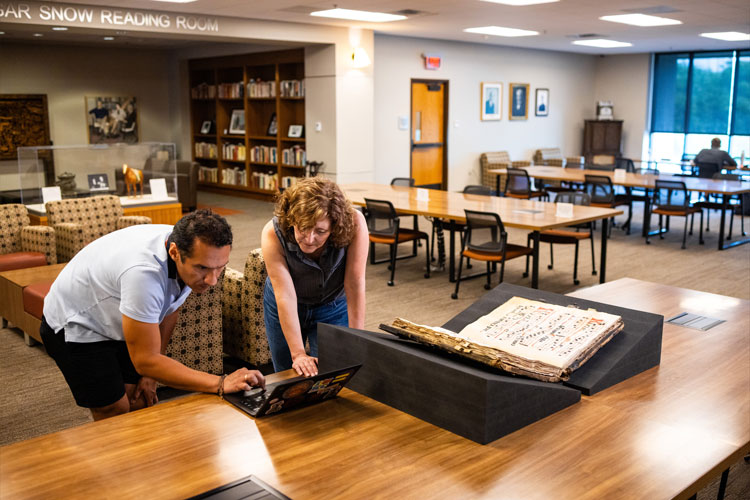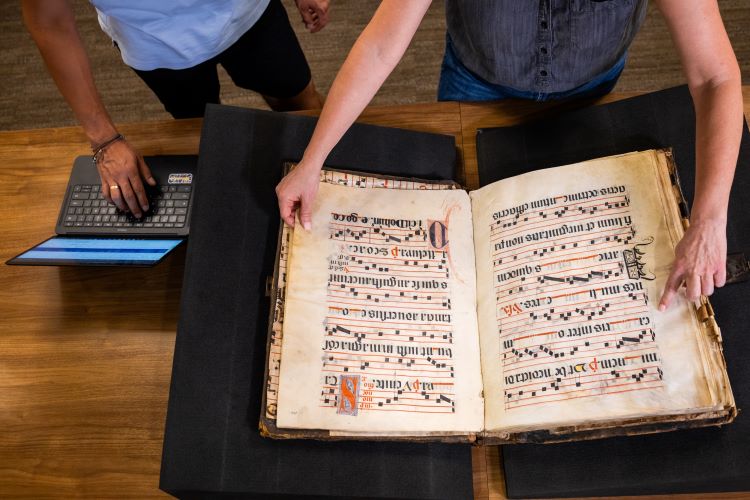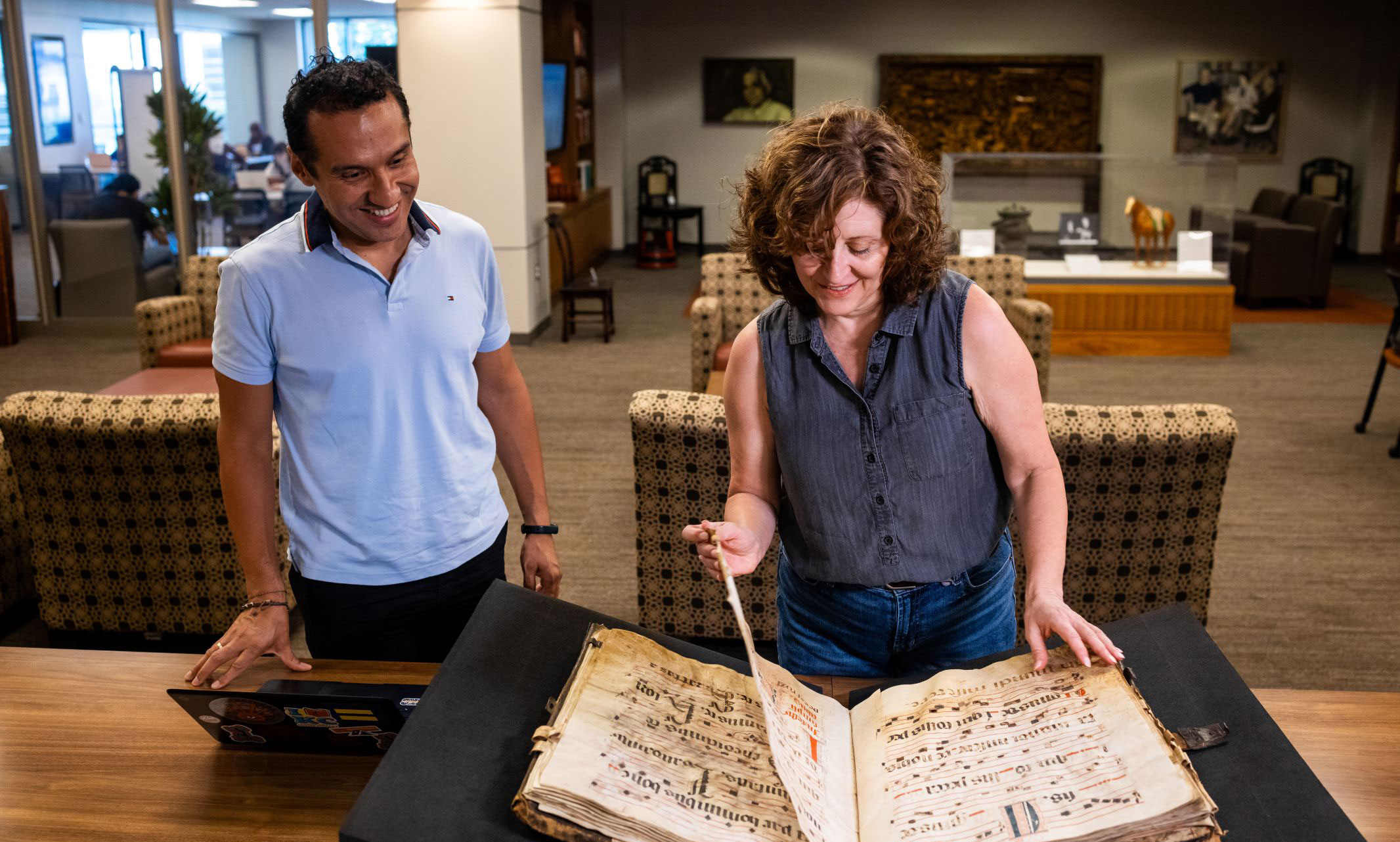In the quiet of the Miller Nichols Library, a faculty member and a student are poring over a book.
While the sight may be a familiar one on college campuses across the country, these two are poring over an original text, hundreds of years old, and they are working to make this text available to an international audience and future generations to come.
Virginia Blanton, Ph.D., Fulbright scholar and Curators’ Distinguished professor of English, and Milton Gómez-Toledo, Ph.D. candidate in English, are both a part of the Digital Analysis of Chant Transmission (DACT), a large network aimed to develop new digital resources in tandem with existing chant databases.
“When I think about how history, and particularly book history, gives us an opportunity to learn about other people, it also gives us a chance to learn about ourselves in terms of being part of the story of the human condition,” Blanton said.

Gómez-Toledo finds value in furthering the field of Medieval history through research, but he finds a lot of personal value as well.
“I have been contacting librarians, archivists and curators all over the United States to help us locate those manuscripts and fragments,” Gómez-Toledo said. “Some of the manuscripts have been relocated to Europe, and some of them are in different university libraries or private institutions. These research opportunities help students like me develop communication, organizational and interpersonal skills that are extremely relevant in our future careers.”

Even beyond the student community, Blanton’s research is giving a voice to people, primarily nuns, who have historically been voiceless for centuries.
“Virginia Blanton is one of those researchers who is very committed to delving into archives and locating materials that during the time that things transpired, were not seen as important,” said Tamara Falicov, dean of the UMKC School of Humanities and Social Sciences. “She's excavating the past and looking at people who have been marginalized in society. She’s doing more to make the contributions of this group visible.”
Like her student, Blanton finds value in the research for UMKC and across humankind itself.
“The community is really supported by a research university in terms of what we're able to deliver,” Blanton said. “It’s our obligation as faculty to help make these resources available to the larger community. I think we as humans try to make meaning. We want to look at the world and say that there is a reason and a purpose for our existence, and books are a way for us to inscribe that meaning.”

